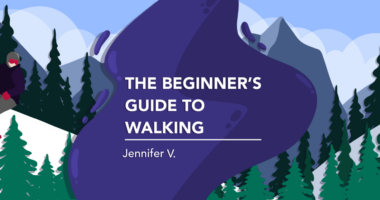Let’s Talk About Sex, Intimacy, and Rare Disease

“Let’s talk about sex, baby/ Let’s talk about you and me/ Let’s talk about all the good things/ And the bad things that may be/ Let’s talk about sex.” — Salt-N-Pepa
My friends and I used to giggle every time this song came on the radio in the early 1990s. We would huddle together and try to sing along with all the lyrics. A debate over what the artists were really saying would often ensue. Back then, there was no internet to easily find the lyrics, so it was up to our keen ears to decipher them.
I also remember feeling so grown-up because we said the word “sex.” Although we didn’t fully comprehend its meaning, we knew enough to understand that the word had significant meaning, and this led to endless giggles.
The taboo topic of sex
Today, as I read through various neuromyelitis optica (NMO) support groups online, the topic of sex is still taboo. Even as adults, we still giggle like children every time the topic comes up in discussion. We’ll apologize for bringing up the topic, and we’re still uncomfortable using anatomically correct terminology.
But how will we ever have honest conversations if we’re still embarrassed to admit that we have sex, and like it, and that we’re curious about it?
I get it. During my recovery from a transverse myelitis attack, I suffered from debilitating spasms triggered by random movements and orgasms. I was worried this would happen for the rest of my life, and I spiraled into a deep depression.
Imagine being terrified of an orgasm.
I needed to have a discussion with my neurologist, but I could never bring myself to have the conversation. I credit him with saving my life and improving its quality. He’s a kind, intelligent, and humorous expert, but he takes on a fatherlike persona during my checkups. He tells me stories about his grandchildren and has affectionately nicknamed me “Kid.”
Thankfully, the spasms stopped happening, which meant I never had that awkward conversation with my neurologist.
Date Your Mate Month
May is National Date Your Mate Month, which I fully endorse. Too many couples fall into a rhythm of daily grind. Life is hectic, between work schedules, family responsibilities, and trying to prioritize individual wellness.
My husband, Mike, and I have been together for 15 years, 13 of which I’ve had NMO. While I wouldn’t wish my poor health on anyone, NMO has made us a stronger couple. We’ve been on the verge of disaster several times, including a period in my life when I had to relearn how to walk again.
So now we don’t sweat the small stuff. We operate from a glass-half-full mentality, and we know how to take things in stride.
We also know to prioritize each other. We still date each other, and I like how we’re both adventurous enough to try new things. In many ways, NMO reminds us not to take each other — and our health — for granted.
Defining intimacy
When living with a rare autoimmune disease, most days mean we’re uncomfortable in our own bodies. I’m constantly fidgeting. I’m a horrible cuddler. A foot rub while watching the hockey game today might feel excruciating tomorrow.
Knowing how to be affectionate toward me is always a guessing game, which is a cruel joke because physical touch is my love language.
Hollywood has done relationships a great disservice. Inexperienced couples might imagine that happily ever after includes regular grand gestures and declarations of love. That’s not sustainable and would be incredibly exhausting.
So it’s important we make intimacy our own, which is different for every couple. We can’t have (good) sex without intimacy, and we can’t have intimacy without trust and communication.
For Mike and me, it happens in the way we look at each other and somehow know what the other is thinking. It’s how he wraps his large, strong frame around my body and makes me feel safe. He always asks first, because my body might feel numb, heavy, or like it’s on fire. It’s also how I can melt down safely in front of him, yet he’ll still say I’m a strong person.
Today, I may want us to be close and physically intimate, but maybe later, or even tomorrow, I’ll find it impossible. It’s about him being OK with the unpredictable nature of my body and still loving me.
The most challenging part about sex is talking about it. Knowing how to have these conversations and allowing ourselves to be vulnerable takes practice. The rest of it, though, is pretty fun.
Note: Neuromyelitis News is strictly a news and information website about the disease. It does not provide medical advice, diagnosis, or treatment. This content is not intended to be a substitute for professional medical advice, diagnosis, or treatment. Always seek the advice of your physician or other qualified health providers with any questions you may have regarding a medical condition. Never disregard professional medical advice or delay in seeking it because of something you have read on this website. The opinions expressed in this column are not those of Neuromyelitis News or its parent company, Bionews, and are intended to spark discussion about issues pertaining to neuromyelitis optica spectrum disorder (NMOSD).







